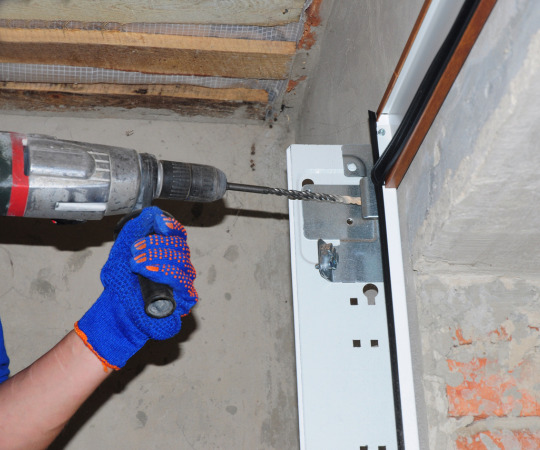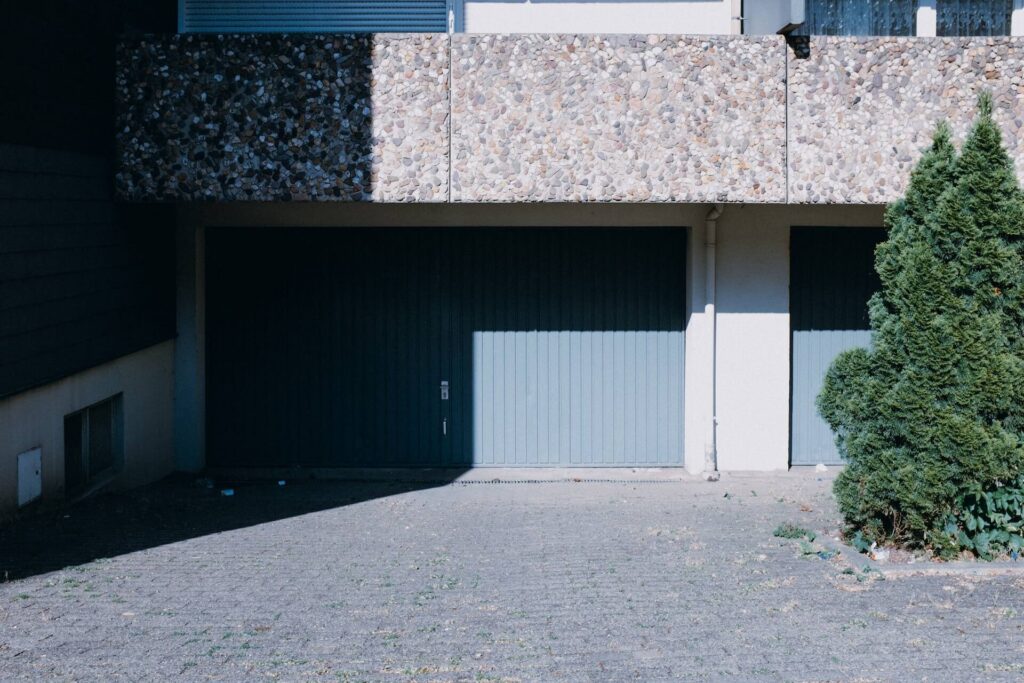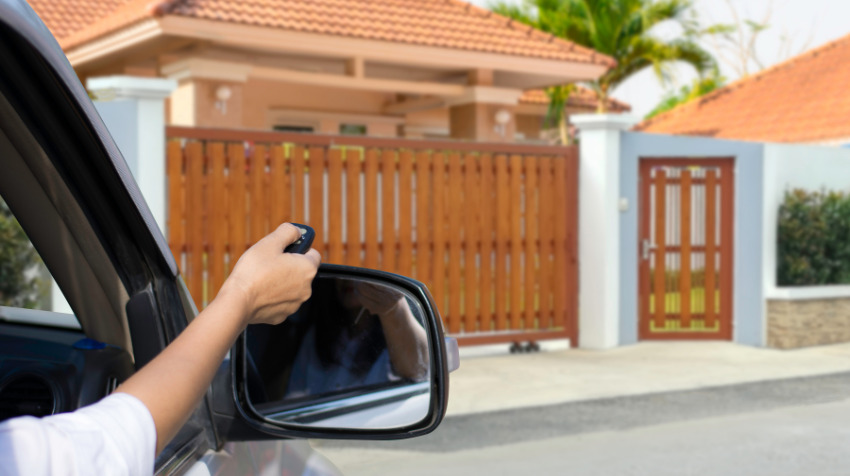Extend its Lifespan: Essential Maintenance Tips for Your Garage Door
Are you tired of dealing with a malfunctioning garage door? Is it giving you trouble every time you try to use it? If so, then it’s time for some regular maintenance.
A well-maintained garage door not only functions smoothly but also increases the security of your home. Regular tune-ups are essential to keep your garage door running at its best and avoid costly repairs in the future.
In this article, we will provide expert tips on how to maintain your garage door. From checking sensors and lubricating tracks to tightening hardware and inspecting springs, these tips will help you keep your garage door in excellent condition.
We’ll also discuss the importance of scheduling professional maintenance regularly to ensure that any potential issues are addressed before they turn into major problems.
So, let’s get started and learn how to keep your garage door running smoothly!
Check the Sensors
Before you start the maintenance routine, make sure the sensors are functioning properly by doing a quick check. Sensor alignment is crucial for smooth and safe operation of your garage door.
To test the sensors, stand inside your garage and press the button to close the door. As it begins to close, wave an object in front of one of the sensors. The door should immediately stop and reverse direction.
If the door doesn’t reverse, there may be an issue with sensor alignment or wiring. Troubleshooting tips include checking for obstructions in front of the sensors, making sure they’re clean and free of debris, and ensuring they’re not misaligned due to accidental bumps or hits.
If these steps don’t solve the problem, consult a professional technician for further assistance.
Once you’ve verified that your sensors are working correctly, you can move on to lubricating the tracks for optimal performance.
Lubricate the Tracks
Hey, you want to make sure your garage door moves smoothly and quietly, so give those metal pathways a little love with some proper lubrication. Proper lubrication is essential for track maintenance as it reduces friction between moving parts of your garage door system.
Lubricating the tracks regularly will help reduce wear and tear on the rollers and hinges while also preventing rust buildup. Before applying any lubricant, make sure to clean the tracks thoroughly. Remove any debris or dirt that may have accumulated on them using a soft cloth or brush.
After cleaning, apply a silicone-based lubricant to the inside of the tracks only. Avoid using grease or oil-based products as they can attract dust and dirt leading to further damage over time. With regular track maintenance through proper lubrication, you can ensure that your garage door operates smoothly for years to come.
To keep your garage door running like new, tightening hardware is another vital step in its maintenance routine.

Tighten Hardware
Before we get started on tightening the hardware of your garage door, take a quick look at the bolts and nuts to make sure they’re secure.
Loose hardware can cause serious problems if left unchecked, so it’s important to fix any issues as soon as possible.
To tighten loose hardware, use a socket wrench or adjustable wrench to snug up all of the nuts and bolts.
Check Bolts and Nuts
Make sure all the nuts and bolts are tight so that your garage fortress stays solid and secure, capable of protecting your prized possessions. Proper tightening is essential to prevent any loose hardware from causing damage or accidents.
Rust prevention is also crucial as it can weaken the bolts and nuts over time, making them more prone to breaking. To check if everything is in order, use a socket wrench to tighten any loose bolts or nuts. Make sure not to overtighten them as this can cause damage too.
If you notice any rust on the hardware, remove it with a wire brush and apply a rust inhibitor to prevent further corrosion. By taking these simple steps, you can ensure that your garage door remains in top condition for years to come.
Now that you have checked all the bolts and nuts for proper tightening and rust prevention, it’s time to move on to the next step: tighten loose hardware.
Tighten Loose Hardware
Now it’s time to get down to business and tighten up any loose hardware so that your garage fortress remains sturdy and secure. With regular use, bolts and nuts can become loose, causing the door to operate improperly or even fall off its tracks.
To prevent this from happening, you need to check all the hardware on your garage door and make sure everything is properly tightened. Here are some tips for adjusting tension and ensuring proper alignment:
- Use a socket wrench or pliers to tighten any loose bolts or nuts.
- Check the hinges on your garage door panels for wear and tear. If they’re worn out, replace them with new ones.
- Adjust the tension on the springs if necessary. Springs that are too tight can cause damage to your door over time, while those that are too loose won’t be able to support the weight of the door properly.
By following these tips for tightening up loose hardware, you’ll ensure that your garage door operates smoothly and securely. Next up, let’s take a look at how to inspect springs on your garage door.
Inspect Springs
As you approach your trusty metal giant, take a moment to examine the coils that provide the strength and support to lift it effortlessly. Your garage door springs play a crucial role in its operation, but they’re also one of the most dangerous components.
Spring replacement should only be done by a professional with experience and proper tools. However, you can inspect them regularly for signs of wear and tear, such as rust or gaps between coils. If you notice any issues, call for maintenance immediately before attempting to use your garage door.
It’s essential to take safety precautions when inspecting or handling your garage door springs. Wear protective gear such as gloves and eye goggles, stand clear of the springs while testing them, and never attempt to adjust them yourself unless you’ve proper training.
Proper maintenance can extend the life of your garage door springs and ensure safe operation for years to come. With that said, let’s move on to cleaning the door itself to keep it looking fresh and functioning smoothly.

Clean the Door
Cleaning your door regularly not only keeps it looking great but also ensures a safer and more efficient experience every time you open or close it. Power washing your garage door is an effective way to remove dirt, grime, and other debris that may accumulate on the surface over time.
Additionally, rust prevention is crucial to maintaining the longevity of your garage door. Here are four tips to keep in mind when cleaning your garage door:
- Use a gentle soap and water solution to avoid damaging the finish.
- Avoid using abrasive cleaning materials that can scratch or damage the surface.
- Regularly inspect for signs of rust or corrosion.
- Apply a rust inhibitor to prevent future rust from forming.
By following these simple tips, you can help keep your garage door functioning properly for years to come. As important as regular maintenance is, there may be times when professional assistance is necessary.
Let’s take a look at scheduling professional maintenance for your garage door in the next section.
Schedule Professional Maintenance
If you’re not one to dismiss the value of professional maintenance for your portal, consider scheduling a check-up with a specialist who can ensure that everything is in tip-top shape.
One major advantage of having a maintenance contract with a reliable technician is that it can save you money in the long run. Regular tune-ups can prevent costly repairs and replacements down the line.
In addition, finding reliable technicians for garage door maintenance can be challenging, but it’s important to do your research and find someone who has experience and expertise in the field. Look for reviews and recommendations from other customers, and make sure they’re licensed and insured.
By investing in regular professional maintenance, you’ll have peace of mind knowing that your garage door is functioning efficiently and safely.
Frequently Asked Questions
How do I know if my garage door is in need of a tune-up?
If you’re wondering whether your garage door needs a tune-up, there are a few common issues to look out for. If your door is making unusual noises or moving slower than usual, it may be time to schedule some preventative maintenance.
Additionally, if you notice any visible wear and tear or damage to the door itself or its components, such as springs or cables, it’s important to address these issues before they worsen. By taking these preventative measures and scheduling regular tune-ups with a professional, you can keep your garage door running smoothly and avoid costly repairs down the line.
Can I perform maintenance on my garage door myself, or should I always hire a professional?
When it comes to maintaining your garage door, you may wonder whether or not you should handle the job yourself or hire a professional.
DIY maintenance can save you money, but it’s important to consider the risks involved. If you’re not experienced in handling garage doors, attempting repairs on your own could lead to injury or even further damage to your door. Plus, if something goes wrong during a DIY project, you may end up spending more money in the long run when a professional has to step in and fix the issue.
On the other hand, hiring a professional will ensure that your garage door receives expert care and attention. While it may cost more upfront, it can save you time and hassle down the line.
Ultimately, the decision of whether or not to tackle maintenance yourself depends on your experience level and comfort with handling garage doors.
What is the average lifespan of a garage door, and how can I extend its longevity?
To maximize the lifespan of your garage door, it’s important to practice regular maintenance techniques. These can include lubricating moving parts, tightening bolts and screws, and keeping the track clean.
You should also inspect your door for any signs of wear and tear, such as cracks or frayed cables, and address these issues promptly. Additionally, make sure to test your garage door’s safety features regularly to ensure they’re functioning properly.
By taking these steps, you can extend the longevity of your garage door and save yourself from costly repairs down the line.
Are there any safety precautions I should take when performing maintenance on my garage door?
When it comes to performing maintenance on your garage door, safety should always be a top priority. In fact, according to the US Consumer Product Safety Commission, garage doors are responsible for an estimated 30,000 injuries each year.
To avoid becoming a statistic, it’s important to follow some key safety tips when working on your garage door. Firstly, make sure you have the right equipment on hand, such as gloves and safety glasses. Additionally, never attempt any repairs or adjustments while the door is in motion and always disconnect the power before starting work.
By taking these precautions and being vigilant about safety at all times, you can ensure that your garage door remains a safe and reliable part of your home for years to come.
What are some common signs that my garage door springs may need to be replaced?
If you notice that your garage door is suddenly struggling to open or close, or if it’s making loud creaking sounds when in operation, it may be time for a spring replacement.
Springs are an integral part of the garage door mechanism, and they can wear out over time due to constant use and exposure to the elements.
While some homeowners may attempt to replace the springs themselves, this can be a dangerous task as springs hold a significant amount of tension. It’s recommended that you seek professional services for spring replacement to ensure safety and proper installation.
Don’t ignore signs that your garage door springs need replacing. Address the issue promptly to avoid further damage and potential safety hazards.
Conclusion
Now that you’ve learned about the essential steps to maintain your garage door, it’s time to put them into action. Regular maintenance will not only extend the life of your garage door but also keep it functioning safely and smoothly.
So, what are you waiting for? Grab your tools and start checking those sensors, lubricating tracks, tightening hardware, inspecting springs, and cleaning the door. But don’t forget: while DIY maintenance is crucial, scheduling professional maintenance once a year is equally important.
By following these expert tips and scheduling regular professional tune-ups, you can ensure that your garage door stays running smoothly for years to come. Don’t wait until something goes wrong – take control of your garage door’s health today!




